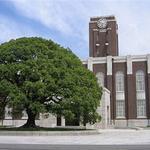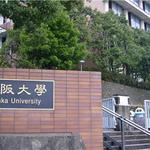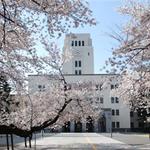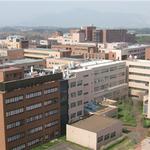Introduction to Tokyo University of Agriculture
Overview
Tokyo University of Agriculture (abbreviated as "Tokyo University of Agriculture", "Tokyo University of Agriculture", "TUA") is a private university located in Tokyo, Japan, founded in 1891. The school is the earliest private agricultural university in Japan and the only university in Japan with an agricultural major. Tokyo University of Agriculture has significant advantages in agriculture, biological sciences, environmental sciences, food sciences and other fields, and has trained a large number of outstanding agricultural and food science talents.
Campus
Tokyo University of Agriculture has three campuses:
Setagaya Campus: Located at 1-1-1, Sakuraoka-cho, Setagaya-ku, Tokyo, it is the main campus of the school, mainly including the School of Applied Biological Sciences, the School of Regional Environmental Sciences, and the School of International Agriculture and Food Research.
Matsugi Campus: Located at 2400 Matsugi, Ome City, Tokyo, it is the location of the College of Agriculture.
Okhotsk Campus: Located in Kitami City, Hokkaido, it is the location of the College of Bioindustry.
Educational philosophy
Tokyo University of Agriculture adheres to the educational philosophy of "practical learning" and emphasizes the cultivation of students' practical operation ability and ability to solve practical problems. The school is committed to cultivating talents with international vision and social responsibility, and pays special attention to the comprehensive development and personality development of students.
Disciplines and Faculties
Tokyo University of Agriculture has multiple colleges and institutes covering a wide range of subject areas:
College of Applied Biological Sciences
Department of Applied Biology
Department of Biochemistry
Department of Biotechnology
College of Regional Environmental Sciences
Department of Environmental Sciences
Department of Regional Resource Sciences
College of International Agriculture and Food Research
Department of Agricultural Economics
Department of Food Science
College of Agriculture
Department of Agricultural Production Sciences
Department of Forestry
Department of Animal Husbandry
College of Bioindustry
Department of Bioindustry Sciences
Department of Bioresource Sciences
Featured Courses
Applied Biological Sciences: Learn the basic theories and practical skills of biological sciences, and cultivate professionals who can work in the fields of biotechnology, biopharmaceuticals and bioengineering.
Regional Environmental Sciences: Learn the basic theories and practical skills of environmental sciences, and cultivate professionals who can work in the fields of environmental protection, resource management and social sustainable development.
International Agriculture and Food Studies: Learn the basic theories and practical skills of agricultural economics and food science, and cultivate professionals who can work in the fields of international agricultural trade, food safety and food processing.
College of Agriculture: Learn the basic theories and practical skills of agricultural production, forestry and animal husbandry science, and cultivate professionals who can work in the fields of agricultural production, forestry management and animal husbandry.
College of Bioindustry: Learn the basic theories and practical skills of bioindustry science and bioresource science, and cultivate professionals who can work in the fields of bioindustry, bioresource management and bioproduct development.
Practical Teaching
Tokyo University of Agriculture has advanced experimental equipment and laboratories, providing students with rich practical teaching resources. The school has also established cooperative relationships with many agricultural enterprises, food companies and research institutions, providing students with rich internship and practice opportunities.
International Exchange
Tokyo University of Agriculture actively participates in international exchange programs, has established cooperative relationships with universities in many countries, and provides students with opportunities for overseas study and exchange. The school has an International Student Office to provide comprehensive support and services to international students.
Ranking
Tokyo University of Agriculture ranks among the top agricultural universities in Japan, especially in the fields of biological sciences, environmental sciences and food sciences. It has a high reputation. The school ranks 801-1000 in the 2024 QS World University Rankings and 801-1000 in the 2024 Times Higher Education World University Rankings.
Costs
Admission fee: about 200,000 yen
Tuition:
Undergraduate: about 700,000 to 800,000 yen per year
Graduate: about 700,000 to 800,000 yen per year
The specific cost may change, it is recommended to contact the school directly for the latest information.
Campus
The campus of Tokyo University of Agriculture is beautiful and well-equipped, including modern teaching buildings, laboratories, libraries and sports facilities. The school also has student dormitories to provide convenient living conditions for out-of-town students.
Contact information
Tel: +81-3-3416-1111
Fax: +81-3-3416-1112
Email: info@tua.ac.jp
Other information
Internship opportunities: The school has established cooperative relationships with many agricultural enterprises, food companies and research institutions, providing students with rich internship and practical opportunities.
Employment support: The school has a career guidance center to provide students with employment consultation, resume writing guidance, interview skills training and other services to help students find employment smoothly.
Scholarship system: The school has a variety of scholarship systems to help students reduce their financial burden.
-

The University of Tokyo
-

Kyoto University
-

Osaka University
-

Waseda University
-

Hitotsubashi University
-

Nagoya University
-

Tokyo Institute of Technology
-

University of Tsukuba
-

Keio University
-

Tohoku University
-

Mesoamerican University
-

Istmo University
-

Mariano Galvez University of Guatemala
-

Regional University of Guatemala
-

Galileo University
-

Francisco Marroquín University
-

Rafael Landívar University
-

University of the Valley of Guatemala
-

University of San Carlos of Guatemala
-

Technological Institute of Tlaxcala Plateau
-

Golfo University
-

Technological University of South Sonora
-

Technological University of Huejotzingo
-

Tizimín Institute of Technology
-

Chilpancingo Institute of Technology

